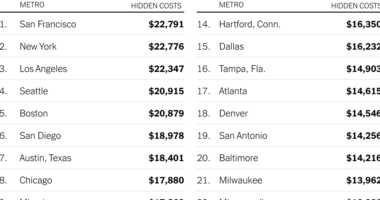
More people who deferred medical care during the pandemic are heading back to their doctors, UnitedHealth Group Inc. UNH -0.91% said Thursday, citing a trend that weighed on the company’s profits in the latest quarter compared with a year ago.
Revenue climbed over the last three months as the company’s insurance business and its health-services’ arm both grew to serve more people. But the company’s earnings fell due to higher medical expenses, as patients sought medical care that they had delayed during the pandemic.
The Minnetonka, Minn.-based health insurer posted a quarterly profit of $4.46 a share, down from $6.91 a share in the prior-year period. Revenue climbed to $71.32 billion, from $62.14 billion in the second quarter of 2020.
For the UnitedHealthcare insurance business, revenue climbed 13% year-over-year, benefiting from growth in people covered in the company’s community and seniors programs. But the insurance business’s operating earnings fell by more than half, as revenue growth was offset by people seeking deferred medical care.
The company’s medical-care ratio—a measure of the proportion of premiums paid out for medical care—rose to about 83%, compared with about 70% a year ago. Overall medical costs rose to $46.55 billion, up by more than a third year-over-year.
The insurer also logged growth in its Optum health-services business, where revenue rose 17% to $38.3 billion.
UnitedHealth’s adjusted profit of $4.70 a share in the quarter was better than the $4.43 a share that Wall Street analysts polled by FactSet had been expecting. Shares climbed about 1.1% in premarket trading.
The company also raised its guidance for the full year, forecasting adjusted earnings of $18.30 to $18.80 a share this year. Three months ago, it had said it was expecting adjusted earnings of $18.10 to $18.60 a share.
But UnitedHealth continues to expect the pandemic to weigh on its full-year results, pulling earnings down by about $1.80 a share compared with what they would have been otherwise, the company said. It cited costs from testing and treating people for Covid-19, patients’ deferred medical care for other conditions, unemployment and other economic considerations as contributing factors.
Write to Matt Grossman at [email protected]
Copyright ©2021 Dow Jones & Company, Inc. All Rights Reserved. 87990cbe856818d5eddac44c7b1cdeb8









